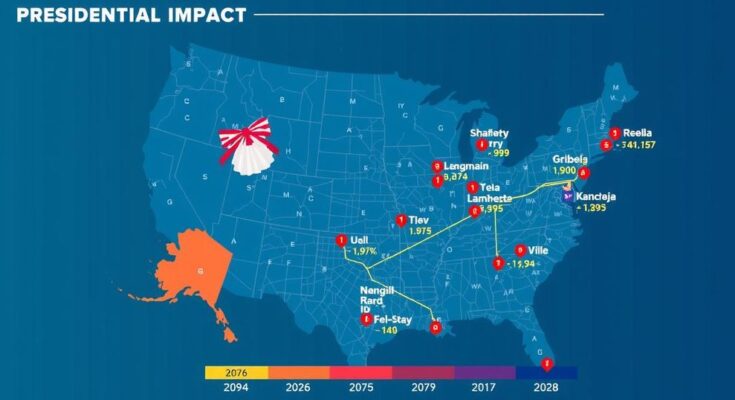As the 2024 elections approach, consumer spending remains steady despite mixed sentiments about personal finances. Historical data reveals that retail sales tend to grow in election years. Economic policies proposed for the upcoming election could impact consumer purchasing power significantly, especially for lower-income households facing inflation and job market insecurities.
As the 2024 presidential election approaches, the dynamics of consumer spending remain a focal point for economists and marketers alike. While traditional beliefs suggest election years stir uncertainty in consumer behavior, data indicates that spending often continues its steady growth. This year, retail sales have seen a modest increase of 2.5% compared to 2023, which aligns with historical trends showing that spending usually remains stable before elections, with only slight upticks in the following year. Consumer sentiment, however, is a different story. Recent findings show that a significant portion of U.S. citizens feel financially worse off than the previous year, grappling with inflation and job insecurity. For instance, 43% of respondents in a survey echoed these sentiments, which are further mirrored in findings from the University of Michigan Survey indicating that 45% of consumers feel similarly disillusioned about their financial standing. Political affiliations exacerbate this sentiment, revealing a stark divide in perceptions during differing administrations. As consumers face a challenging economic landscape, the situation becomes more complex with fluctuating job market indicators. Although unemployment remains low, perceptions of job availability have declined sharply, suggesting that while jobs exist, finding and switching to them may feel increasingly daunting. Amid these turbulent waters lies the mystery of the consumer say/do gap, where individuals assert their dissatisfaction yet continue to spend robustly. Currently, real retail sales grew at an impressive rate of 3.5% over the prior year. This paradox raises questions about the balance between sentiment and spending behavior, hinting at potential effects of rising wages and moderating inflation on consumer psychology. With the impending election looming, potential policies could tilt the scales of consumer purchasing power. Proposed tariffs on imports could raise costs, leaving consumers to navigate challenging choices when it comes to their spending habits. Meanwhile, initiatives like excluding tipped income from taxes or expanding the Child Tax Credit could provide financial relief, especially for lower-income households who might otherwise struggle to make ends meet. These policies promise to be influential in determining consumer patterns as both the political landscape and economic conditions evolve in the coming year.
The article delves into the intertwining relationship between U.S. consumer spending and the impact of presidential election years, examining historical trends and current sentiments. It highlights how spending patterns have generally shown stability before elections, with modest growth afterward. The piece also addresses the psychological elements affecting consumer behavior in light of recent inflation, job market perceptions, and political sentiments that shape financial outlooks. Policymaking in the context of the upcoming election is projected to play a crucial role in consumer spending dynamics as well.
In conclusion, the 2024 presidential election holds significant implications for consumer spending and sentiment in the U.S. Despite financial worries and mixed signals from the labor market, consumer spending has demonstrated resilience. Policymakers’ decisions surrounding tariffs and tax reforms may further influence economic behavior, shaping the future landscape of consumer spending. As the election draws near, both consumers and businesses will closely watch how these variables interplay in shaping the economy.
Original Source: nielseniq.com



